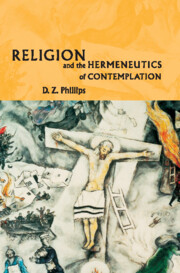Book contents
- Frontmatter
- Contents
- Preface and acknowledgements
- 1 Hermeneutics and the philosophical future of religious studies
- 2 Bernard Williams on the gods and us
- 3 Hume's legacy
- 4 Feuerbach: religion's secret?
- 5 Marx and Engels: religion, alienation and compensation
- 6 Tylor and Frazer: are religious beliefs mistaken hypotheses?
- 7 Marett: primitive reactions
- 8 Freud: the battle for ‘earliest’ things
- 9 Durkheim: religion as a social construct
- 10 Lévy-Bruhl: primitive logic
- 11 Berger: the avoidance of discourse
- 12 Winch: trying to understand
- 13 Understanding: a philosophical vocation
- Index of names
- Index of subjects
12 - Winch: trying to understand
Published online by Cambridge University Press: 03 December 2009
- Frontmatter
- Contents
- Preface and acknowledgements
- 1 Hermeneutics and the philosophical future of religious studies
- 2 Bernard Williams on the gods and us
- 3 Hume's legacy
- 4 Feuerbach: religion's secret?
- 5 Marx and Engels: religion, alienation and compensation
- 6 Tylor and Frazer: are religious beliefs mistaken hypotheses?
- 7 Marett: primitive reactions
- 8 Freud: the battle for ‘earliest’ things
- 9 Durkheim: religion as a social construct
- 10 Lévy-Bruhl: primitive logic
- 11 Berger: the avoidance of discourse
- 12 Winch: trying to understand
- 13 Understanding: a philosophical vocation
- Index of names
- Index of subjects
Summary
LANGUAGE, BELIEF AND REALITY
In chapter 10 we noted an important distinction between Lévy-Bruhl and the intellectualism of Tylor and Frazer. They argued that the faulty reasoning of the primitives led to a belief in magic, whereas Lévy-Bruhl argued that it was their belief in magic which led to their faulty reasoning. The confusions derive from the fact that primitives live in a world of mystical notions.
Evans-Pritchard, as we saw, praised Lévy-Bruhl for emphasising differences between the primitives and ourselves, and the distinctiveness of magico-religious beliefs. On the other hand, in treating these beliefs as illusions, Lévy-Bruhl had failed, according to Evans- Pritchard, to discuss ‘religious facts in terms of the totality of the culture and society in which they are found’.
Interestingly, the view for which Evans-Pritchard criticises Lévy-Bruhl is, in many ways, similar to an earlier view of his own, one expressed in his classic work, Witchcraft, Oracles and Magic among the Azande. Further, there are parallels between his criticisms of Lévy-Bruhl and the criticism of Evans-Pritchard's classic by Peter Winch in his famous paper, ‘Understanding a Primitive Society’. An examination of Winch's criticisms and their relation to later developments in his own work will help us to face further complexities in the task which confronts the hermeneutics of contemplation.
Just as Evans-Pritchard praised Lévy-Bruhl for not attributing faulty reasoning to the primitives, so Winch praises Evans-Pritchard also for refusing to do so. In an earlier exposition of Lévy-Bruhl Evans-Pritchard said:
The fact that we attribute rain to meteorological causes alone while savages believe that God or ghosts or magic can influence the rain-fall is no evidence that their brains function differently from our brains.
- Type
- Chapter
- Information
- Religion and the Hermeneutics of Contemplation , pp. 289 - 317Publisher: Cambridge University PressPrint publication year: 2001



